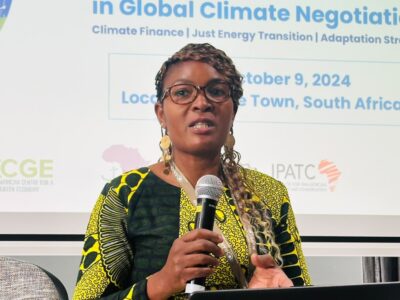Government says Climate Smart Agriculture practices and planting fruit trees are key to ensuring food security at household and national level, amidst drought.
Ministry of Green Economy and Environment Permanent Secretary Dr, Douty Chibamba, said farmers need to be taught best practices of Climate Smart Agriculture.
Chibamba said this after touring small scale farm that were practicing Climate Smart Agriculture with the support of government through the Zambia Integrated Forest Landscape Project (ZIFLP) in Chipata, Eastern Province on Saturday.
He expressed happiness that despite the drought, maize, soya beans and sunflower that were crop rotated, as part of climate smart agriculture practice had performed well.
“The Ministry will ensure that the successor project of the ZIFLP will expand support to farmers practicing Climate Smart Agriculture in Eastern Province,” Chibamba assured.
He explained that the Ministry wanted to prioritise planting of fruit trees as they contribute to food security and nutrition.
Chibamba hinted that government wanted to upscale the Climate Smart Agriculture project and get more partners on board as it was bearing fruits.
“We want to expand and take up more farmers. These are the kind of projects we would like to upscale, we would like to expand Climate Smart Agriculture and have as many partners as possible.” he stated.
Read More: UN calls for more investments in agriculture, climate resilience to overcome debt crisis
Chibamba said government with support from the World Bank, BioCarbon Fund (BioFC) and Global Environment Facility (GEF), implemented the Zambia Integrated Forest Landscape Project in Eastern Province.
He stated that the implementation of the Project started on January, 30, 2018 and ended last week on February 29, 2024.
“The development objectives of the US$32.8 million Zambia Integrated Forest Landscape Project were to improve landscape management, increase environmental and economic benefits,” Chibamba said.
He stated that this was for targeted rural communities, and to improve the recipients’ capacity to promptly and effectively respond to eligible crises and emergencies.
WARNING! All rights reserved. This material, and other digital content on this website, may not be reproduced, published, broadcast, rewritten or redistributed in whole or in part without prior express permission from ZAMBIA MONITOR.












Comments